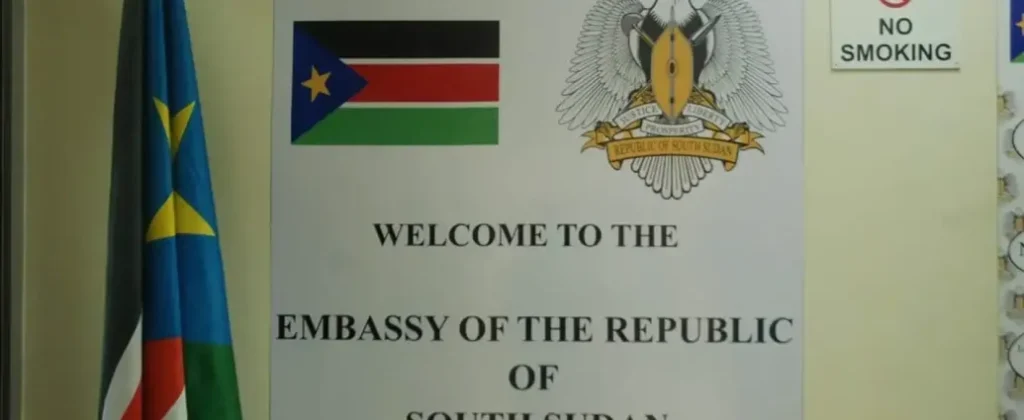The South Sudanese embassy in the Kenyan capital, Nairobi, is set to resume full operations on Thursday after a temporary closure caused by unpaid rent.
The mission was shut on Friday, 7 November, after the landlords took action over several months of arrears.
In a statement on Wednesday, the embassy blamed “administrative and financial adjustments” for the disruption, which it said had now been resolved.
The embassy apologised for the “inconvenience caused by this brief interruption” and said normal services would restart.
The closure prompted concern from civil society groups within South Sudan, who described the situation as an embarrassment for the young nation.
Edmund Yakani, Executive Director of the Community Empowerment for Progress Organization (CEPO), called it “disturbing, discouraging and embarrassing.”
“Kenya is a strategic country for South Sudan, and maintaining a functional and influential diplomatic presence there is critical,” Mr Yakani told Radio Tamazuj.
He urged President Salva Kiir and the Ministry of Foreign Affairs to act swiftly to restore and maintain operations.
Broader financial woes
The Nairobi mission’s troubles are part of a wider financial crisis affecting South Sudan’s foreign service.
Many of the country’s diplomats abroad have gone without salaries for months, making missions vulnerable to such disruptions.
The government in Juba has acknowledged the strain. In September, the foreign ministry announced a plan to downsize staff at embassies and consulates worldwide to cut costs, following a directive from President Kiir.
Ministry Spokesperson Apuk Ayuel described the move at the time as “an internal administrative procedure,” adding that the ministry was “working out how to implement the downsizing plan.”
South Sudan, which gained independence in 2011, has been struggling to recover from a devastating civil war and endemic corruption.
The nation relies on oil for more than 90% of its revenue, but its institutions remain weak and the economy fragile, often leaving its international representation underfunded.




